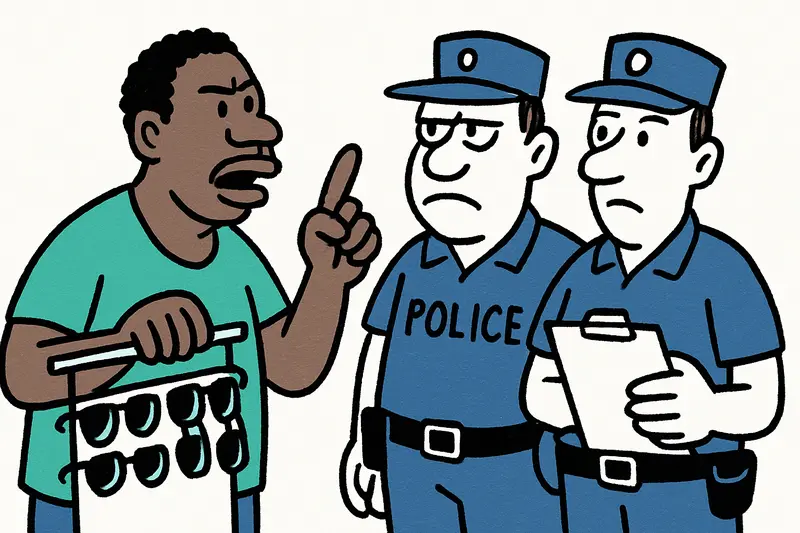Cheikh Ndiaye, head of the Senegalese community on Mallorca, explains why many of his fellow countrymen end up as street vendors on the island — and what would help instead.
Between Playa de Palma and La Lonja: an open conversation
\nEarly in the morning, when the first vans pull up at Playa de Palma and the lounge chairs are still empty, you see them: men and women selling scarves, sunglasses, and small souvenirs. Many come from Senegal. Officially, just under 5,000 Senegalese live on the Balearic Islands, according to statistics. But how many are really here and get by without papers — no one knows for sure. You only suspect it.
\n\nThe man who stands in the middle
\nCheikh Ndiaye is the chairman of the Senegalese association on Mallorca. He speaks without mincing words. 'I used to be a market seller myself,' he tells me on the Passeig, still with the scent of coffee in the air. Today he works as a maître d’hôtel in a hotel in Palma — and he has the experience of how quickly things can slide into insecurity.
\n\nHis message is simple and at the same time uncomfortable: many arrive with empty hands, without a work or residence permit. Without papers there is no health insurance, no regulated work, no prospects. And then you try to survive somehow. Sounds banal. But it isn't.
\n\nControls, pressure, risk
\nIn recent weeks the police in Palma have intensified checks. For some residents that's a bit of order. For Ndiaye it's a concern: 'People need a chance, otherwise they will become desperate,' he says. Young men, he fears, could drift into criminal networks if no legal alternative is offered. And honestly: that would be a bad exchange for everyone.
\n\nHis proposals are pragmatic: handle residency regulations more flexibly, provide more training and further education opportunities, and finally establish a direct line between associations and authorities. 'There is a lack of work on the island,' he says, 'one should use those who are here, instead of pushing them.'
\n\nConsequence and criticism
\nAt the same time, Ndiaye also criticizes parts of his community: there are people who sell drugs or steal. For that, he calls for harsh penalties. And he emphasizes: he works closely with the police to report such cases. Plain and simple, inside and outside.
\n\nIn the end, a mixed picture remains: people trying to build their lives; authorities enforcing order; and a politics that, in Ndiaye's view, has become less cooperative. If you listen to him, Mallorca has a chance: better rules now so that there will be less trouble later. Sounds reasonable. And yes, it would be nicer for all of us if less improvisation were necessary.
Similar News

Ferdinand Needs Help: Mallorca's Famous Farm Pig Becomes Gravely Ill
Ferdinand, Fresopolis' large farm pig, can barely walk. His rescuer is urgently seeking veterinarians and people with li...

Klopp meets Sabatini: Celebrity Padel at Mallorca Country Club
Brief report from Santa Ponsa: former coach Jürgen Klopp and tennis legend Gabriela Sabatini played in the Celebrity Pad...

Beerstreet Boys: Ballermann Acts Launch Schlager Boy Band on Mallorca
A quartet of well-known Ballermann acts aims to winkingly re-energize schlager. On Playa de Palma they experiment with h...

My Heart Drew Me to Palma: How a German-Austrian Couple Settles Here Anew
They swapped Vienna's coffeehouse for sea views: Constanze, a blind communication expert, and her partner Sven explain w...

Celebrity Big Brother: Two Mallorcan Locals in the Container – Love, Conflict and Image Maintenance
Two well-known locals from Mallorca join the new season of Celebrity Big Brother. In Mallorca, conversations at the bar ...
